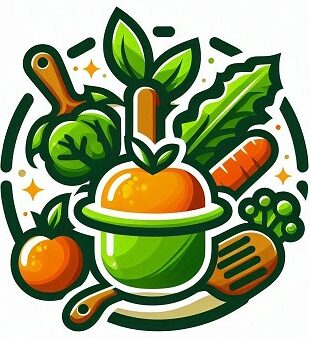There’s nothing quite like the smell of smoky charcoal or the sound of sizzling food on a summer barbecue. Everyone seems to agree that summer grilling is a vibe all its own, but keeping things on the healthier side can be just as enjoyable, and honestly, a lot tastier than most people expect. Over the years, I’ve picked up simple ways to grill and eat smarter without losing out on flavor or the fun of a backyard cookout. Here’s how I handle healthy grilling and what I always recommend to friends and family itching to make the most of BBQ season.

Why Grilling Can Be a Healthy Cooking Choice
A lot of people are surprised when I say grilling can actually be a healthy way to cook. Compared to frying or simmering things in oilheavy sauces, grilling lets you cook with less fat while creating those iconic charred flavors everybody loves. Fat from meats drips away, and you don’t need much extra oil. Grilling also keeps a lot of vitamins and minerals locked in your food, especially when you’re working with veggies and lean proteins. Plus, grilling outdoors lets you socialize and enjoy fresh air, which can make meals even more satisfying and memorable for the whole crew.
Like anything, though, grilling does have its own pitfalls. Certain grill techniques can create chemical compounds that aren’t so great for health, like HCAs (heterocyclic amines) and PAHs (polycyclic aromatic hydrocarbons). But a few simple tweaks make a big difference when it comes to lowering those risks and giving a boost to nutrition at your summer cookouts.
Getting Set Up: Choosing the Healthiest Grilling Methods
So, what actually is the healthiest way to grill? For starters, keep an eye on the heat and try not to overchar your food. I love using a gas grill or an electric grill when I can; a steady lower heat helps cut back on flame flareups that create those HCAs and PAHs. Charcoal can work fine too, just let it burn down until it’s mostly gray and avoid putting food right in the flames.
Placing a sheet of foil or a grill basket between your food and the grates works wonders when you want to avoid direct contact with flames. I opt for marinades with fresh herbs, citrus, or vinegar, since these have been shown to help lower those grillformed compounds. Even just trimming off some of the visible fat means fewer drips and less smoke, which helps keep things cleaner overall. Grilling thinner cuts at a medium heat, flipping them often, also limits the char and keeps the inside juicy.
Another helpful approach is to avoid sugary sauces during cooking, as sugar burns quickly and can blacken meats before they’re cooked through. Save those for the last minute or serve them on the side to keep your food fresh and appealing.
Tips For Making Your Barbecue Healthier
Lots of small changes add up to a much healthier barbecue that still tastes amazing. Here are a few favorites I follow whenever I’m planning a summer grill night:
- Go heavy on vegetables. Peppers, onions, cherry tomatoes, zucchinis, corn, mushrooms, and eggplants all taste even better when grilled. I thread them on skewers, toss them in a grill basket, or just grill bigger slices directly.
- Use lean proteins. Skinless chicken, fish, shrimp, turkey, and lean beef cuts (like sirloin or tenderloin) grill perfectly and offer plenty of flavor without extra saturated fat.
- Try plantbased options. Grilled tofu, tempeh, or even big slices of portobello mushroom can stand in for meat with zero cholesterol and lots of texture.
- Swap in whole grains and hearty sides. I skip mayonnaiseheavy salads and try fresh grilled corn, quinoa salad, or beanbased dips instead. These sides add fiber and help round out any meal.
- Make your own sauces and dressings. Bottled stuff is usually packed with sugar, sodium, and preservatives. It’s easy to whip up a simple vinaigrette or yogurt dip with herbs.
To take things up a notch, get creative with herbs, citrus zest, and freshly ground spices for seasoning. They bring bold flavors without the need for extra salt or sugar. Also, try grilling vegetables whole to lock in moisture and flavor. Slicing grilled vegetables for salads or wraps after cooking can keep them juicier and more satisfying.
How To Have a Great Summer Barbecue (and Still Feel Good)
I always say the best summer barbecue is the one where everyone has a good time and leaves feeling satisfied and energetic. Besides focusing on healthy foods, I pay attention to a few other details:
- Prep ahead. Marinate proteins a few hours early to lock in moisture and flavor. Skewer veggies, mix a fresh salad, and chill your dips or salsas in advance so you’re not stuck in the kitchen.
- Keep variety on the table. Mix up proteins, vegetables, and sides to appeal to all diets—omnivore, vegetarian, glutenfree, dairyfree—you name it.
- Set up water, iced tea, or flavored sparkling water. Having tasty drinks ready helps everyone stay hydrated, which can be hard to remember in the heat if there are boozy cocktails around.
- Grill fruit for dessert. Pineapple, peaches, plums, and watermelon go right on the grill for a sweet, naturally healthy ending to a meal.
Making just a few of these swaps lets you enjoy the best parts of grilling season: bold flavors, quality time with friends and family, and food that fuels you for the rest of a sunny day. It’s also a great time to set up familyfriendly outdoor activities, which helps balance out hearty eating with a little movement and fun for everyone.
The Healthiest Foods To Eat at a Barbecue
If someone’s asking me what they should actually pick off the grill for the healthiest option, I usually recommend grilled fish or skinless poultry paired with as many veggies as you want. Something as simple as a skewer loaded with salmon and colorful bell peppers is absolutely packed with protein, healthy fats, and vitamins.
I’m all about the veggieheavy options because they steal the show when done right. Grilled portobello mushrooms, eggplant slices, corn on the cob (without butter, or just a tiny bit of olive oil), and zucchini planks are winners that don’t feel like an afterthought. You can even grill lettuce—try romaine hearts brushed lightly with olive oil and garlic for a warm salad base. For sides, a black bean and corn salad or a chickpea tabbouleh has protein, fiber, and bright summer flavor.
Other excellent choices include shrimp kebabs, trout fillets, turkey burgers with lettuce wraps, and even grilled asparagus or cauliflower steaks. Lighter, flavorful sides like cucumber salad or tomato and onion slaw keep things refreshing and nutrientpacked.
Easy Tricks To Lower BBQ Health Risks
Keeping things safe on the grill helps you avoid those health concerns from all that deliciously charred flavor. Here’s what always works for me:
- Don’t burn or overchar your food. Remove bits that get too black and skip any parts you burned just in case. Using a thermometer ensures meats are cooked through without having to leave them on too long.
- Marinate everything. Even a quick 30minute soak helps limit chemical formation and adds awesome taste.
- Flip frequently. The more you flip, especially for thinner cuts, the less time any one side spends getting scorched.
- Trim the fat off meat. Less fat means fewer flareups and less smoke.
- Line your grill. Foil or grill mats keep juices from dripping and creating smoke. Just don’t cover the entire grill—leave spots open for proper air circulation.
Remember to clean your grill thoroughly after each use to prevent buildup and flareups next time. Using sturdy longhandled tongs or spatulas also saves your hands from the heat and makes flipping food a breeze. And always keep a spray bottle of water nearby, just in case a flareup needs to be tamed quickly.
Common Grilling Questions (With Straightforward Answers)
I get lots of grilling questions at every cookout, so here are some of the most popular, plus my quick thoughts:
What is the healthiest method of grilling?
Lower, indirect heat while using a gas or electric grill is a great bet. Marinades, protective grill baskets, and regular flipping all help reduce lessdesirable compounds.
How can I make a barbecue healthier?
Stock up on veggies, stick to lean proteins, skip the processed meats when possible, and use lighter homemade sauces. Swapping out white buns for whole grain or lettuce wraps is also really helpful.
What’s your goto summer barbecue trick for the best results?
Prepping lots of colorful grilled veggie platters and serving them with a fresh dip like tzatziki gets everyone eating more plants, and makes the table look way more festive, too.
What is the healthiest food to eat at a barbecue?
Grilled fish, lean chicken, tofu, and all kinds of fresh vegetables are go-tos for both flavor and nutrition. You can’t go wrong with a big mixed grill of veggies and a piece of salmon.
Final Thoughts: Going Beyond the Basics for Healthier Grilling
Healthy grilling doesn’t mean skimping on taste or ditching your BBQ favorites. Focusing on fresh produce, lean proteins, smart marinades, and a little bit of simple planning goes a long way. Every summer, I find that these habits not only make the food taste better but help everyone feel their best. If you’re new to healthy grilling, just try swapping out a few things at your next cookout and see how it feels. Sometimes, those little changes become the traditions you end up loving most. Happy grilling!





Grilling has been a staple in my summer routine for years, and switching to healthier methods has completely transformed how I approach BBQs. I started using leaner cuts of meat and pairing them with grilled vegetables brushed lightly with olive oil and herbs, which adds amazing flavor without relying on heavy sauces. I’ve also found that using a grill basket for smaller items not only prevents sticking but also makes cleanup much easier. Making these small changes has helped me enjoy cookouts guilt-free while still impressing guests with delicious, satisfying meals.